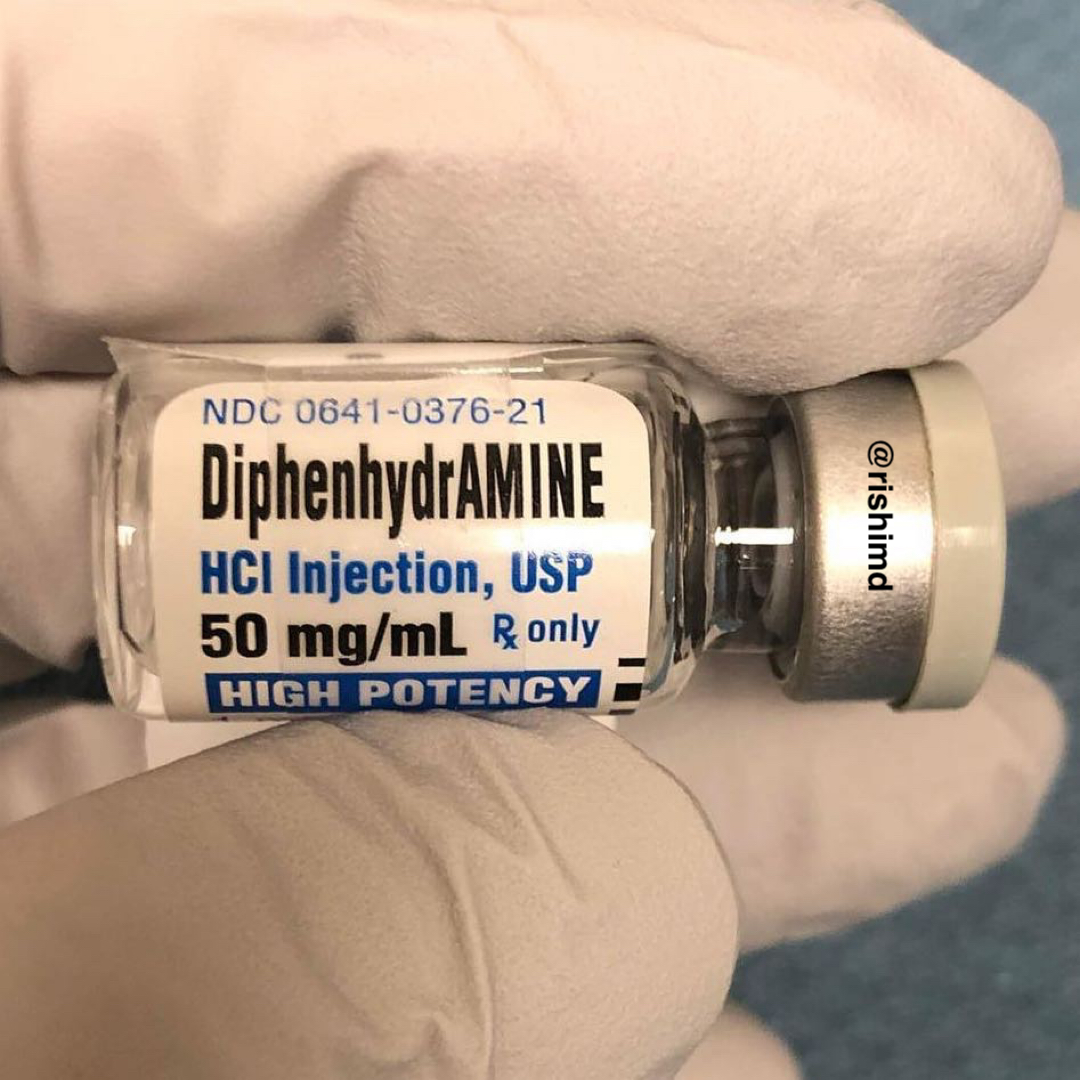Diphenhydramine (Benadryl) is a first-generation antihistamine that blocks H1 histamine receptors. Unlike many second-generation antihistamines, first-generation medications like diphenhydramine cross the blood-brain barrier and inhibit histamine’s important role in sleep and wakefulness. Couple this with diphenhydramine’s anticholinergic effects in the central nervous system, and one can understand the sedating and deliriogenic potential of this medication (especially in the elderly), which can lead to cognitive impairment. For this reason, I find it worrisome when elderly patients are admitted with Benadryl as a “home sleep aide.”
As an intensivist and anesthesiologist, I administer diphenhydramine for seasonal allergies, mild allergic reaction to medications/transfusions, generalized pruritus that I feel is attributed to histamine release, and as a part of treating suspected anaphylaxis. I DON’T use it for itchiness related to epidurals/spinals. Instead, I’ll try nalbuphine or remove the narcotic out of the solution. I will prescribe second-generation antihistamines like loratadine, fexofenadine, and cetirizine if patients tolerate oral medications due to more favorable side effect profiles.
Drop me a comment below with questions! 🙂






